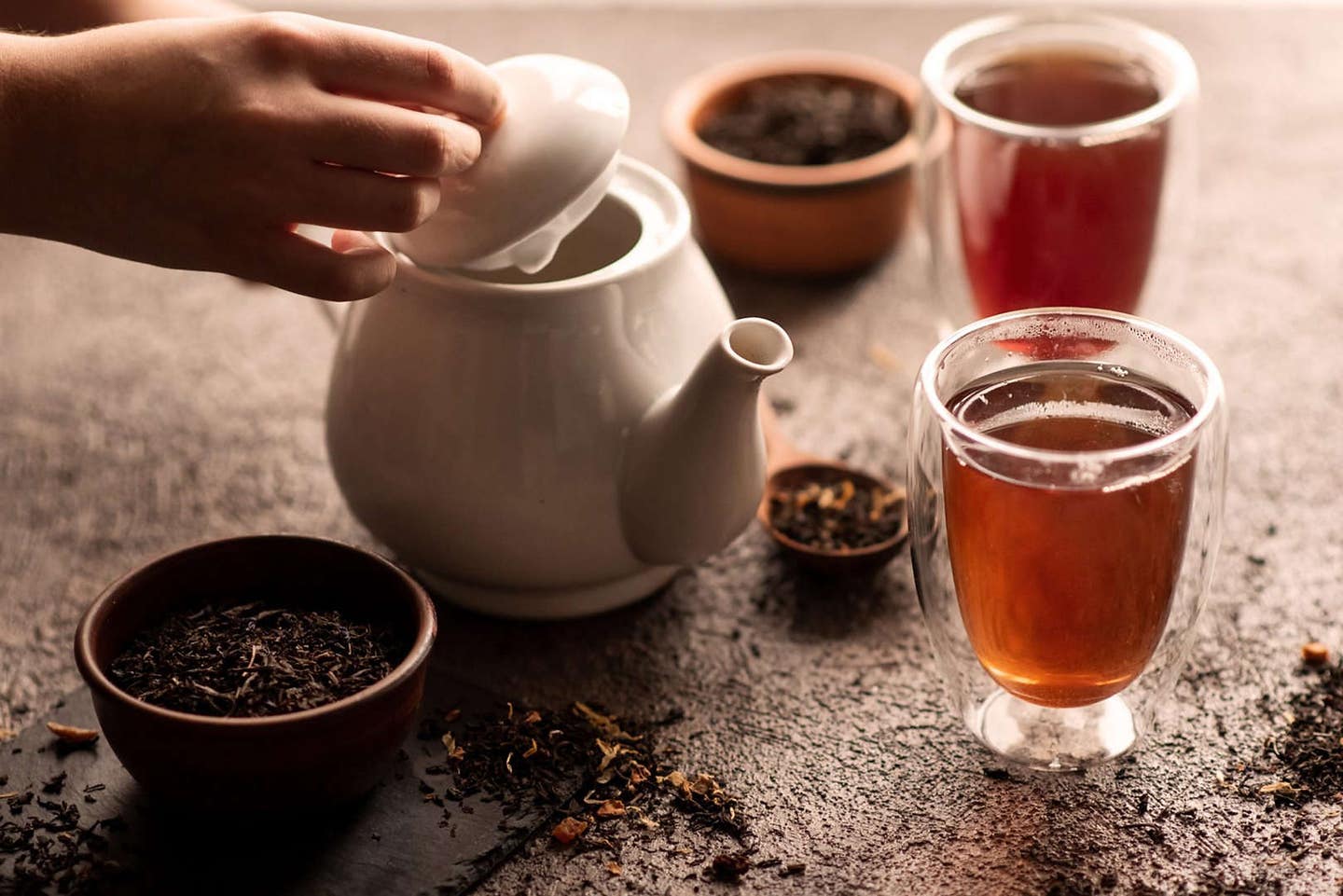A daily cup of tea helps reduce Type 2 diabetes risk, study finds
Dark tea may reduce type 2 diabetes risk by improving glucose excretion and insulin sensitivity, according to a groundbreaking study.

Daily tea consumers exhibited a 15% decreased risk of contracting prediabetes and a notable 28% reduced chance of developing type 2 diabetes. (CREDIT: CC BY-SA 4.0)
The global rise in type 2 diabetes mellitus (T2DM) poses a serious health and economic challenge. This chronic condition, influenced by genetics, diet, and environment, has seen its prevalence skyrocket in recent decades.
As researchers seek preventive strategies, dietary habits, including tea consumption, have emerged as a potential area of exploration. Recent findings suggest certain teas, particularly those unique to Chinese traditions, may play a role in reducing the risk of diabetes and improving blood sugar control.
Tea and Diabetes: A Historical Perspective
Tea, derived from the leaves of Camellia sinensis, is second only to water as the world’s most consumed beverage. Its forms include green, oolong, black, and the lesser-known “dark tea,” each distinguished by varying degrees of fermentation. Beyond cultural significance, tea has gained attention for its potential health benefits, particularly in diabetes management.
Earlier studies have hinted at the benefits of tea’s bioactive compounds. Green tea contains epigallocatechin-3-gallate, while black and oolong teas offer theaflavins and thearubigins. Animal studies have shown these compounds to have hypoglycemic effects. Yet, their low bioavailability and inconsistencies in human studies have led to debates about their efficacy.
Two major Chinese studies exemplify this discrepancy. A 2018 investigation found green tea consumption increased T2DM risk by 20%, while a 2021 study linked it to an 8% reduced risk. These contradictions underscore the complexity of dietary studies, influenced by variables such as genetics, methodologies, and lifestyle factors. Consequently, updated analyses incorporating recent cohort studies are essential.
New Evidence: The Role of Dark Tea
A recent groundbreaking study, presented at the European Association for the Study of Diabetes in Hamburg, Germany, shines a spotlight on dark tea. Unlike other teas, dark tea undergoes microbial fermentation, which may enhance its bioactive properties.
Related Stories
Researchers from the University of Adelaide and Southeast University in China analyzed nearly 2,000 Chinese adults across diverse health statuses, ranging from non-diabetic to diabetic.
Participants’ tea consumption patterns were assessed alongside a series of health metrics, including glucose levels and insulin resistance. After accounting for lifestyle factors, the findings revealed compelling benefits associated with daily tea drinking.
Regular tea consumers had a 15% reduced risk of prediabetes and a 28% lower chance of developing T2DM compared to non-drinkers. These effects were particularly pronounced in dark tea drinkers.
Dr. Tongzhi Wu, co-lead researcher, emphasized the significance of these results: “Our findings hint at the protective effects of habitual tea drinking on blood sugar management via increased glucose excretion in urine, improved insulin resistance, and, thus, better control of blood sugar.”
Dark Tea’s Unique Properties
Dark tea’s fermentation process sets it apart from other teas. This process may boost antioxidant and anti-inflammatory properties, enhance insulin sensitivity, and promote a diverse gut microbiome.
Notably, researchers observed parallels between dark tea’s effects and those of SGLT-2 inhibitors, a class of diabetes drugs that lower blood sugar by increasing glucose excretion through urine.
While this similarity is intriguing, experts urge caution. Dr. Utpal Pajvani from Columbia University noted that “there is insufficient evidence to suggest that drinking dark tea would have beneficial effects that mimic” these medications. Nonetheless, the potential for natural alternatives to pharmaceutical interventions remains an exciting avenue for further study.
Dr. Abasalon Gutierrez of UTHealth Houston highlighted related findings, such as the impact of kombucha, another fermented beverage, on fasting blood sugar levels. He acknowledged dark tea’s potential but stressed the need for more research to elucidate its mechanisms, particularly concerning kidney function.
These findings could have significant implications for public health strategies. Dr. Zilin Sun from Southeast University’s Institute of Diabetes suggested that incorporating dark tea into daily diets might be a simple yet effective step toward better health.
While the results are promising, researchers caution against drawing definitive conclusions. More extensive studies are needed to validate these findings and explore their applications.
Tea’s centuries-old heritage is intertwined with its evolving scientific narrative. As researchers continue to uncover its potential health benefits, the allure of traditional beverages as modern-day remedies grows stronger.
Whether dark tea gains a foothold in diabetes prevention guidelines remains uncertain, but its promise underscores the importance of integrating cultural practices into contemporary health research.
Note: Materials provided above by The Brighter Side of News. Content may be edited for style and length.
Like these kind of feel good stories? Get The Brighter Side of News' newsletter.
Joseph Shavit
Head Science News Writer | Communicating Innovation & Discovery
Based in Los Angeles, Joseph Shavit is an accomplished science journalist, head science news writer and co-founder at The Brighter Side of News, where he translates cutting-edge discoveries into compelling stories for a broad audience. With a strong background spanning science, business, product management, media leadership, and entrepreneurship, Joseph brings a unique perspective to science communication. His expertise allows him to uncover the intersection of technological advancements and market potential, shedding light on how groundbreaking research evolves into transformative products and industries.



